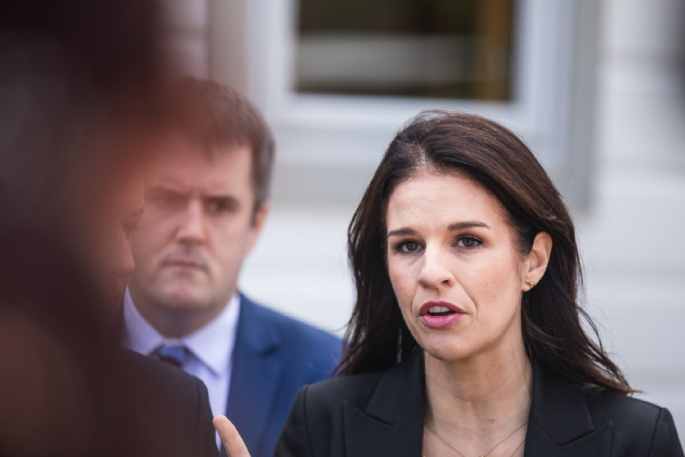The government is taking advice on its predecessor's plan to make online maths and literacy tests a prerequisite for NCEA qualifications from 2026.
Trial runs of the tests have had failure rates of more than 40 per cent with higher rates among Māori and Pacific students, and schools in poor communities.
Students had been let down by the curriculum and it would be unfair to make the tests the only way to achieve NCEA qualifications, says Education Minister Erica Stanford.
"Across the curricula in high school we do need to be focusing on literacy and numeracy, to have a co-requisite, on its own, right now is troublesome because those kids have been behind the curriculum where they should be for many many years right through primary and intermediate."
"So at the moment there is a dual pathway in place for two years, you can either sit the co-requisite test, for want a better word it's a test, and get your literacy and numeracy that way, or you can pick a certain standard within the curriculum at high school and get your literacy and numeracy that way.
"There is a dual pathway that's in place that the government had to put in place when they quickly realised that only half the students were going to be passing those literacy exams."
"The advice that I'm taking at the moment is how long do we keep that dual pathway in place."
Learning support concerns
Stanford says she campaigned on removing "back end waste and bloat" and shift that to the front end of the education system.
One area she was very concerned about was learning support, she says.
"Because every school I go into in every part of the country, it doesn't matter which equity level, it doesn't matter where it is have always says to me 'the issue that we have is learning support and there aren't enough resources'."
It was a matter of going through line by line to see how to shift resources to the frontline of education, she says.
Charter schools
Stanford says she would be ensuring that children who did not fit within the state system would have an alternative and in the past charter schools had served that role well.
She says if there were a dozen charter schools up and running within the first three years she would see that as a success.
There had not yet been discussions with National's coalition partners about how the schools would be organised and at what speed they would be up and running, she says.
However, there was a lot of work to be done and legislation that needed to be passed in the meantime, she says.



0 comments
Leave a Comment
You must be logged in to make a comment.